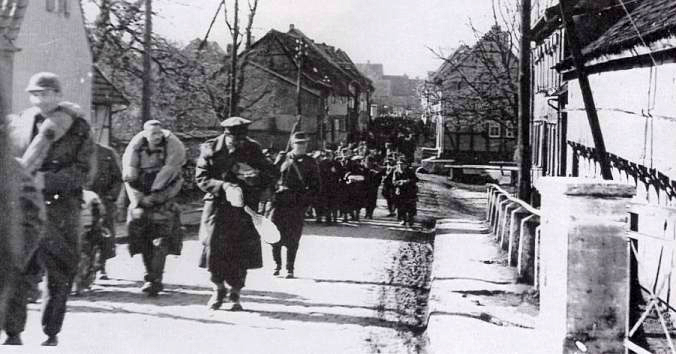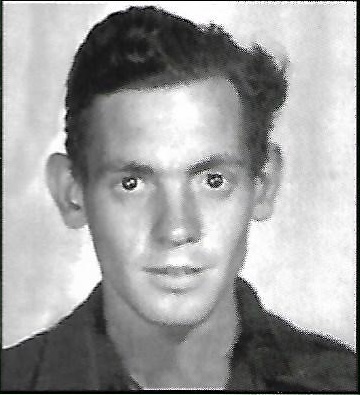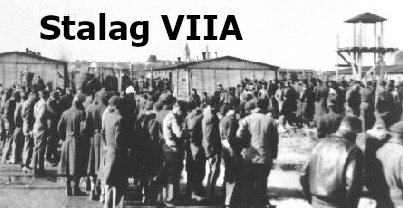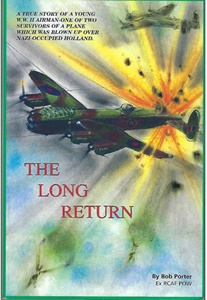The Plan Takes Shape
To enact the plan to move a large group of men past the German lines, a number of bicycles were needed. To ask for them would raise questions, instead the bicycles were simply stolen!
After the reported thefts reached the town Mayor he grew very upset asking Police Officer Rakers to investigate. Rakers already knew who the culprits were as he had been their lookout. Things took a nasty twist when the German Police on their own behest became involved. This may have been the reason Rakers was against the plan for such a significant size breakout.
The men left their assembly point rideing in small groups to an old brick yard to meet with someone to keep them under cover until nightfall. When it became dark enough all nineteen would cross the first bridge. The crossing the was accomplished without incident. However the Canadian Army patrol Porter was to meet did not show up. It was decided amongst them to follow the road with hopes of linking with the Canadian Army at some point. Sgt. Porter, as well as others previously concealed by the Underground including members of a British Army unit all now followed the Dutch guides. They proceeded until they heard a German patrol approaching. Everyone took cover taking along their bikes.
Things Become Serious
After the enemy patrol had past, the escapers minus two of the Dutch guides who got separated from them, continued on their way successfully passing many enemy outposts with sentries standing guard. The guides were lost but felt that they were now past No Mans Land. The guides decided to head south on the road. Approaching a crossroads a cyclist appeared out of the darkness, making it impossible to determine who it could be, friend or foe. Then things became wild. Bullets from machine guns were flying and the group became even more spread out as they ran and sought safety from the firing.
Sgt. Porter now found himself with a smaller cluster of men including Army Sergeant Major Wilf Berry and he had to quickly learn how to be in the Army! You did what the Sergeant Major shouted at you to do. When he says dive the new Army inductee Porter dove into the icy mud, water or whatever.
In the chaos Bob and Wilf looked for an escape out of the danger zone. Wilf had been shot in the arm and Bob had lost his shoes the partly frozen mud. The shoes which held his identification hidden in a hollowed out heel. Neither one of them had any thoughts of swimming the ice filled river. Bob could not swim and Wilf with his wounded arm could not make it to the far bank.
A quiet over came in the cold night, Bob and Wilf took shelter in an old hut. They found some frozen apples which turned out to be uneatable. They also found some old sauerkraut that tasted awful. But food was food. The German troops were everywhere, like angry bees. Searching in any and every hiding place. A wounded man and a shoeless man could not hope to remain at large for long.
Once captured Porter was in a spot. He no longer was Sergeant Porter of the RCAF. He simply was a man running from the German forces dressed in civilian clothing. The Wermacht thought they had captured a member of the Dutch Underground. At first his treatment was not too unkind, a bowl of soup and Dutch clogs for his feet, then things were to change.
Porter had seen Dirk, one of the Dutch guides caught that night. He had been beaten up and was not tended to as far as could be seen.
Enter the German Army Field Police
The capture of a mixed bag of Underground members, military types and others of unknown affiliation brought attracted the attention of the German Army Field Police. A unit that collaborated closely with the Secret Field Police, SS and other villainous types. Their duties were wide ranging from traffic control to executions of partisans.
Interrogations are of wits and nerves for those on the receiving end. The SS Officers as well as the Gestapo always held the upper hand. Using threats of punishment or worse, which they could carry out with little if any authority. Bob Porter had the steady nerves which had served him well since first facing the dangerous skies over Europe.
His one negative point was that he was not in uniform when he was captured, making him a spy in the eyes of the men who demanded information from him on the part the Underground played in hiding him.
His determination to keep to his story paid off when someone somewhere decided his fate was him being sent to Kruisberge concentration camp.
Concentration camp
For any one person to venture forth and try to summarize or put into their own words the feelings, emotions and the nightmarish world those words conjure up, other than Bob Porter himself about this time in his life is inconceivable .
Life as a POW
Kruisberge camp would come under the control of the Wermacht. The SS and Gestapo keepers had been recalled. It may have been this change of command that helped Porter to become a POW at a Stalag.
As the truck left Kruisberge with its Wermacht guards, Sgt. Porter was reunited with Sergeant Major Wilf Berry there were other military types on board all headed further East into Germany increasing the distance from the advancing Allied lines.
Porter had left nothing behind and carried with him also nothing. All he had was the tattered filthy clothing and clogs he had lived in, slept in and protected from theft by fellow inmates for months.
The truck stopped after several hours, the guards herded them out of the back. Different guards crudely pushed them along. They were separated by service branches, then as officers and NCOs.
His new captivity was still captivity. Guards were still Guards. However the captors were different. Some had been there a long time others were relatively fresh faces to Stalag XIIID Nuremberg . The newer ones complained among other things about the food and refused to eat it. They had no idea how lucky they were.
The Long March refers to a series of forced marches during the final stages of the War in Europe. There were hundreds of thousands of POWs held in German military prison camps, many were forced to march westward across Poland, Czechoslovakia, and Germany in extreme winter conditions. Some began their ordeal January of 1945 walked anywhere from 500 miles up to 1,000 miles. Others began their forced march in March and some in April. The start of the marches depended on the locations of the camps. As the Allied and Soviet forces advanced closer to the POW camps the march would begin for its inhabitants. German authorities decided to evacuate POW camps, to delay liberation of the prisoners.
The Long March
Rumours were always being spread around the compounds. POWs spied on their captors and vice- versa and so stories about anything proliferated.
Bob Porter now a POW, found the April 1st rumour was true! The camp was being moved. Everyone had to be ready to leave the following day. The captives needed to find or make bags or anything to carry their few belongings.
The trek began with everyone the healthy as it were and the sick alike exiting through the main gates. Porter was somewhere in the thousand man plus stream snaking their way to some distant camp.
Many including Sgt. Porter would find clothing being worn was not suited to long periods of outdoor activity. Footwear for many was lacking the support or warmth required for a multiday march.
For those with Dysentery the march was much worse, weak and falling behind, worried if the guards would shoot them as they laid there added more to their agony .
 The long line of men also became targets of their own air forces. The lines being confused as lines of retreating enemy soldiers.
The long line of men also became targets of their own air forces. The lines being confused as lines of retreating enemy soldiers.
Porter as he moved along kept an eye out for places to dive into if any aircraft was heard overhead. The fact know to him was nothing much could stop the massive damage that the large calibre aircraft guns could inflict on a human. His night times were cold and even more uncomfortable then the barracks at the Stalag. Sleeping in ditches, forest floors or abandoned buildings with no fires allowed. Warmth or hot food of an open fire were not available fearing it would attract unwanted attention in the way of artillery shells headed at them.
Bob Porter overcame this by fabricating a small stove made from a can which once contained tinned beef. Using the dry twigs he gathered along the way to feed his tin stove and yet give off very little glow and not one seen at a distance.
The inevitable happened. A flight of Allied fighters strafed the column, not even making a slow recognisance pass to see who the long line of men were before releasing a destructive withering fire on the scattering men.
Even with all he had seen and heard since his being shot down Bob Porter was deeply affected by the killing of four POWs killed in the attack on his column.
In his book Bob goes out of his way to show his gratitude to the USAAF unit known as the Tuskegee Airmen. The leader of a Flight of this famous all Black squadron made a low level pass, so low Porter could see the face of the pilot. The flyer recognized the column for what it was, waved his men off the attack then wagged his wings at POWs. Climbing off to report what he had seen.
The other over whelming problem of the march was food. The Guards had nothing much to give. The Red Cross managed did manage to catch up with the moving column to distribute one parcel between two prisoners.
During the sixteen days of trekking Porter scrounged the fields and barns for whatever he could find to eat to supplement the parcels. The German farmers helped out with milk and bread as best they could.
Arriving at their destination Stalag XIIID at Nuremberg. The sound of heavy guns plainly heard in distance told Sgt. Porter the front line was moving closer to him and the camp.
On April 28 the members of the 14th Armoured Division of the 3rd Army commanded by General Paton, freed the men who had been captors of the enemy at Stalag VIIA Moosberg. The most memorable moment of the liberation for Bob Porter was receiving a loaf a white bread from a passing GI. It may seem a simple act. For Sgt. Porter former evader, concentration camp inmate and POW it would be a memory he would long remember.
Complete freedom was yet to come for Bob Porter and the others who were ordered to stay close. Members of the German SS and Gestapo were still in the area looking to execute anyone they felt like.
The compound was built for 14,000 men, it now held 100,000 plus. Overflowing with POWs from many other camps some of who had been moved numerous times and walked 500 to 1,000 miles. It was a chore to find a place to sleep. Men were everywhere the camp was so very overpopulated.
The Next Step Towards Home
These tens of thousands of men needed to be processed and transported back to England. Raffles were held to determine the order in which the men were starting to go home. Sgt. Porter was in the 4th or 5th group. (He was unsure which it was while writing his book)
A surprise first stop on the way to Britain was to a Base in France. Used as a health clearance station. Where the men were deloused, bathed, and fresh clothes were the orders of the day. Medical exams helped select the next step for each man based on his condition and needs. Finally the hop across the Channel, packed into Lancasters was for many of the returnees transportation. A debriefing by MI9, for multiple reasons. One being gathering details that could be used on their captors at their trials which were beginning in Germany
He made numerous tries at contacting his wife all seemed to fail as War Time procedures were still in effect.
He was sent to No.3 Personnel Reception Center in Bournemouth to await transport to Canada. No.3 PRC was the place where his British war time participation all began.
There were a few issues Porter needed to get corrected. Back pay, promotions which should have been given to him during his incarceration and possibly a Commissioned rank.
In July of 1945 he started back to Canada, by September he was discharged with rank of Pilot Officer. His wife Ginger followed soon after.
With all he endured during his time in Holland and Germany the red tape of government bureaucracy and the small matter of four shillings and four pence he owed to the squadron Sergeants Mess held up some of his benefits!


 Part Three
Part Three 
 The long line of men also became targets of their own air forces. The lines being confused as lines of retreating enemy soldiers.
The long line of men also became targets of their own air forces. The lines being confused as lines of retreating enemy soldiers.